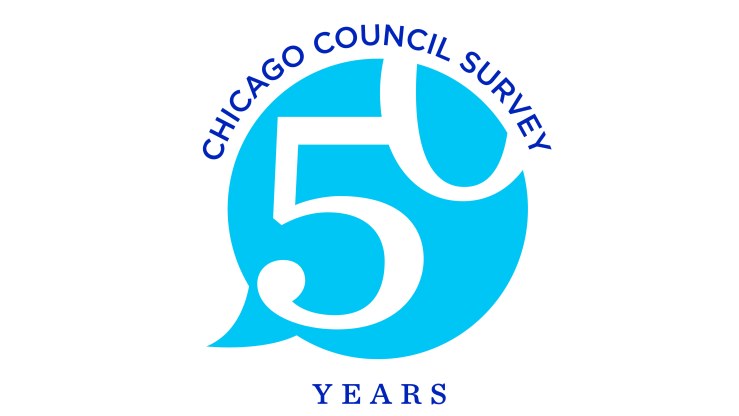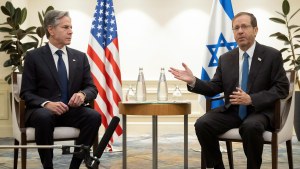Majority of Americans Oppose Sending US Forces to Defend Israel if Attacked by Iran

Whether attacked by its neighbors or Tehran, majorities of Americans oppose using US troops to come to Israel’s defense.
Israelis are braced for possible retaliatory military action from Iran after an Israeli strike killed Hamas political leader Ismail Haniyeh while he was in Tehran. If Iran takes military action directly against Israel, the US public seems to feel it has less skin in the game than in previous years. The 2024 Chicago Council Survey, conducted June 21–July 1, 2024, finds a majority of Americans are now opposed to using US troops to defend Israel if it is attacked.
Four in 10 Favor Using US Troops to Defend Israel if Iran Attacks
An overall 42 percent of the US public would favor using US troops to defend Israel if it were attached by Iran (56% oppose). While a slim majority of Republicans would favor US forces defending Israel in this scenario (53%), only four in 10 Independents (42%) and third of Democrats (34%) agree.
Fewer Now Would Favor US Defense of Israel if Its Neighbors Attack
The unrelenting Israeli attacks against Gaza have likely dampened American willingness to defend Israel, especially among Democrats. In addition, the narrow majority that previously supported using US troops to defend Israel if attacked by a neighboring country has now dissipated to 41 percent (55% oppose). Here too, Republicans are more likely than other partisans to favor using US troops (55%), but at much lower levels than 2015 through 2021 readings. A third of Independents (35%) and Democrats (35%) would favor using US troops to defend Israel if its neighbors attacked, also lower than previous levels.
Slight Majority Would Favor US Participating in Peacekeeping between Israel and Palestinians
The one instance presented to Americans where a majority (54%) would still favor using US troops is in a peacekeeping scenario if Israel and the Palestinians reached a peace agreement. Democrats (62%) are most willing of all the partisans to use US troops in a peacekeeping manner, consistent with previous polling. About half of Independents (51%) and Republicans (48%) agree.
This analysis is based on data from the 2024 Chicago Council Survey of the American public on foreign policy, a project of the Lester Crown Center on US Foreign Policy. The 2024 Chicago Council Survey was conducted June 21–July 1, 2024, by Ipsos using its large-scale nationwide online research panel, KnowledgePanel, in English and Spanish among a weighted national sample of 2,106 adults 18 or older living in all 50 US states and the District of Columbia. The margin of sampling error for the full sample is ±2.3 percentage points, including a design effect of 1.1229. The margin of error is higher for partisan subgroups (±4.2 points for Republicans, ±3.9 points for Democrats, and ±3.8 points for Independents.) or for partial-sample items.
Partisan identification is based on how respondents answered a standard partisan self-identification question: “Generally speaking, do you think of yourself as a Republican, a Democrat, an Independent, or what?”
The 2024 Chicago Council Survey is made possible by the generous support of the Crown family, the Korea Foundation, and the United States-Japan Foundation.



Related Content
 US Foreign Policy
US Foreign Policy
Majorities across all racial groups prefer that the United States remain impartial as fighting between Israel and Hamas continues.
 Public Opinion
Public Opinion
Americans are also slightly more likely to say Israel has gone too far in its war with Hamas than to say Israel’s actions are justified.


